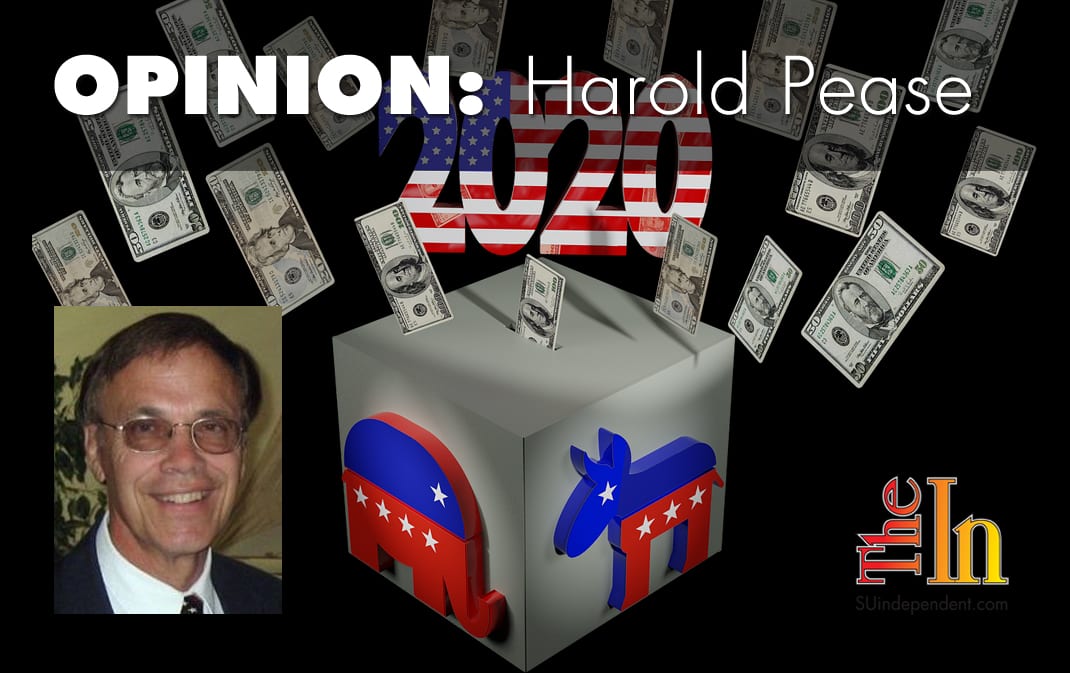
Caucus states inhibit “drive-by” voting
Voters might be confused by the difference between a caucus and a primary, each state offering one or the other to find the right contenders for the general election in November.
In a caucus state such as Utah, there is protection from the “drive-by” voter. Neighbors gather and select from themselves those who have earned their respect. These spend whatever time is necessary at candidate activities, visiting with candidates and reading their literature to decipher between the candidates before voting. Citizens accept that all voters cannot devote such time and energy in the effort. Each of 2,235 precincts in Utah choose from one to five state delegates to differentiate between state candidates and thousands more to do the same for county candidates. Thousands of state delegates, at their own expense, meet in the Salt Lake City area and county delegates somewhere in their county the following month.
In that 30-day time period before a vote is cast, candidates seek to impress these selected delegates with their credentials for the office wanted and delegates can meet with and ask probing questions. This is a far better vetting process than voting based on sound bytes and hunches.
With respect to issues, caucus delegate voters are far more informed than the general public because the public selected them to probe. There exists no public acclaim for delegates. They have to take off work with no compensation for meals and/or travel for a weekend. They do it to ensure liberty.
In a primary state, the overriding principle is that everyone should vote regardless of how informed or ill-informed one is. Candidates get on the ballot by collecting signatures. Television is the major — often the only — source of information for older voters as are social media for younger voters. On the ballot, candidates can submit a word statement, often a paragraph, promoting themselves, but rarely is enough given for voters to make an intelligent choice. This is the only free coverage allowed a candidate. Candidates seeking the office of judge rarely leave any information on the ballot from which to evaluate them. Many voters just guess.
In a primary, voting choice may be but a whim. There exists nothing to protect us from the uninformed. One giving only 10 seconds of forethought may erase the vote of someone spending six months studying an issue or candidate. The whole system is an ignorance paradise.
In a primary, the candidate “buys” the office. Serious candidates know that they must hire a campaign manager who develops campaign strategies, never gives specifics (if the campaign slogan cannot fit on a postage stamp it is too complex), and spends tens of thousands of dollars on media ads mostly defining the opponent as unfit. Of course, those who give large contributions expect access to the winner after the election, so he or she mostly represents them.
In primary elections, it is not a matter of how well informed, experienced, or qualified one is. What is absolutely critical to winning is who you hire to promote you. Money, not knowledge, is most important. During the rest of the campaign, you become a professional beggar, asking everyone, always and endlessly, to contribute to your campaign. Today, candidates deliver their messages to special interest groups that can deliver votes and money. Far more time is spent asking for money than explaining views. Regular voters only know of a candidate by way of television, print or social media.
The following is representative. In the greater Bakersfield, California, area where I once resided, manager Mark Abernathy was the “king maker.” In a conversation with him, he named virtually everyone holding public office in the area as his and boasted of his winning at least 90 percent of all elections the previous ten years. He usually ran several candidates for different offices simultaneously. Those he brought to power were expected to endorse his future candidates. Rarely did anyone beat the “Abernathy machine.” He is certainly a pleasant fellow, dedicated to his philosophy and skilled and ruthless in the art of getting someone elected — but at a hefty price. In a phone conversation with me, he said, “I perceive that you do not have money,” meaning $100,000 or more. I agreed, and he selected another candidate to support. Thus in 2010, I failed to secure a seat in the California State Legislature before a single vote was cast.
In a caucus state, no one “buys” the office as in primaries. Since candidates do not have to appeal to the less informed but only to delegates much more interested in details over generalities, they normally do not have the vast expenditures of money needed in a primary election. A candidate with modest means can compete for any state or federal office, which is far more democratic than in a state utilizing the primary system for selecting candidates. The representatives of the people choose their leaders rather than “king makers” as in primaries. Candidates can put priority on issues rather than on fund raising and appealing to the moneyed class.
Unfortunately, many seek to replace the caucus with a “drive-by” California-type primary bypassing the caucus and getting on the ballot by signatures. If your state is fortunate enough to have one, do not sign any petition to place any candidate on a ballot. It destroys the caucus.
The viewpoints expressed above are those of the author and do not necessarily reflect those of The Independent.
How to submit an article, guest opinion piece, or letter to the editor to The Independent
Do you have something to say? Want your voice to be heard by thousands of readers? Send The Independent your letter to the editor or guest opinion piece. All submissions will be considered for publication by our editorial staff. If your letter or editorial is accepted, it will run on suindependent.com, and we’ll promote it through all of our social media channels. We may even decide to include it in our monthly print edition. Just follow our simple submission guidelines and make your voice heard:
—Submissions should be between 300 and 1,500 words.
—Submissions must be sent to editor@infowest.com as a .doc, .docx, .txt, or .rtf file.
—The subject line of the email containing your submission should read “Letter to the editor.”
—Attach your name to both the email and the document file (we don’t run anonymous letters).
—If you have a photo or image you’d like us to use and it’s in .jpg format, at least 1200 X 754 pixels large, and your intellectual property (you own the copyright), feel free to attach it as well, though we reserve the right to choose a different image.
—If you are on Twitter and would like a shout-out when your piece or letter is published, include that in your correspondence and we’ll give you a mention at the time of publication.
Articles related to “Caucus states inhibit ‘drive-by’ voting”
Here’s how Bernie can beat Trump! (Possibly. Theoretically.)



